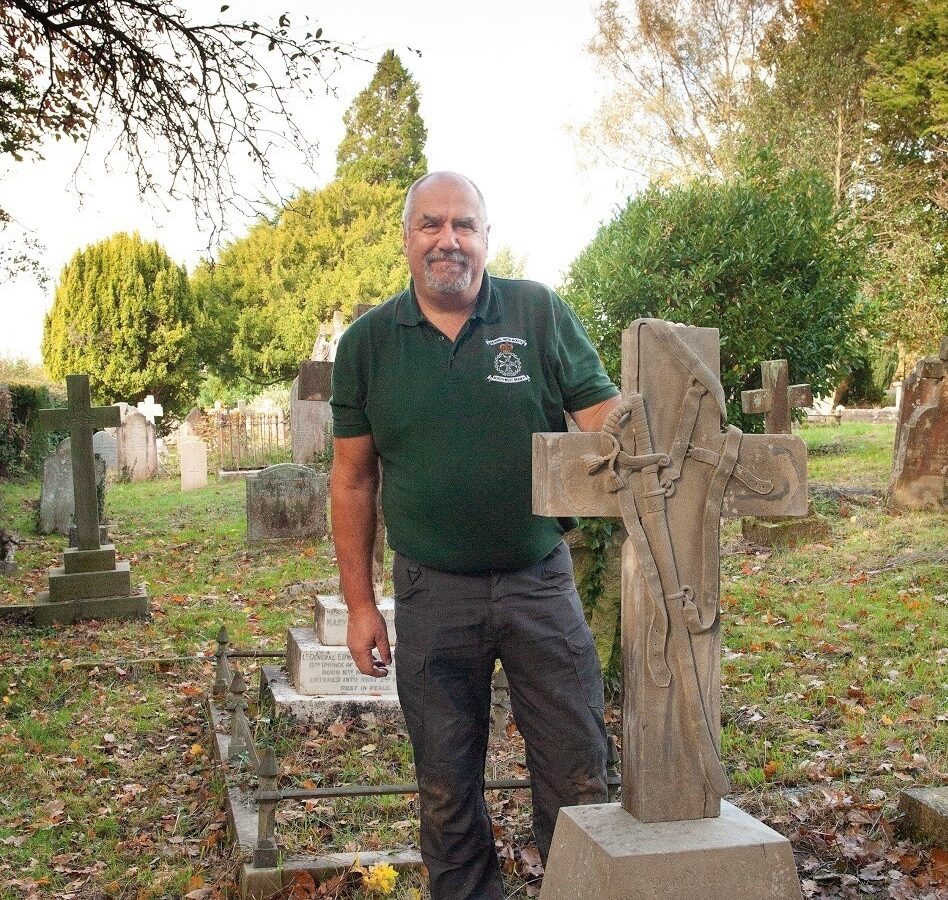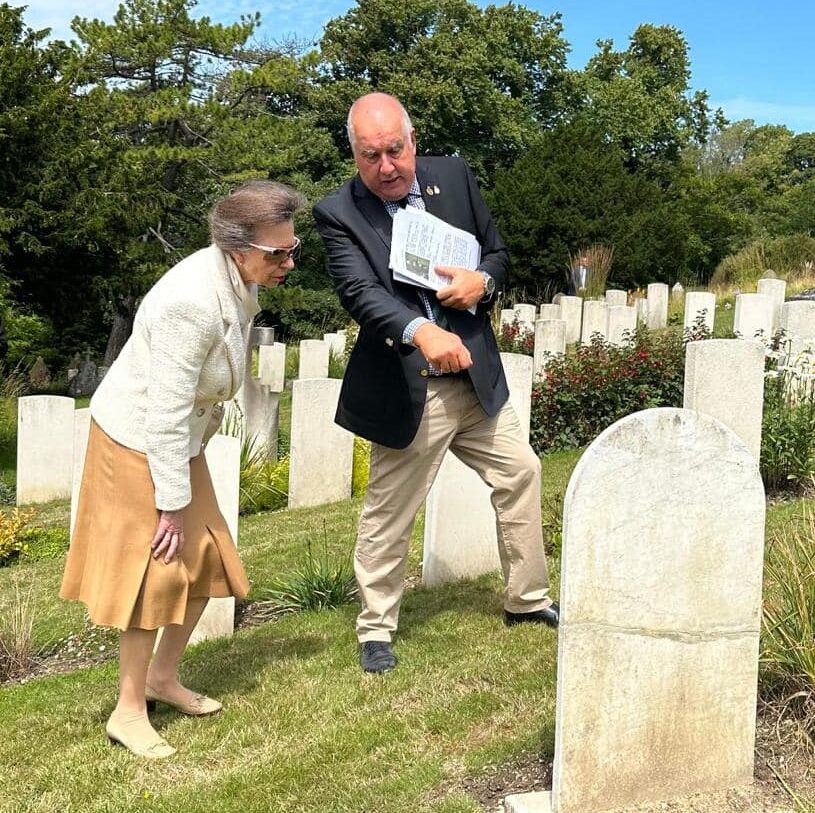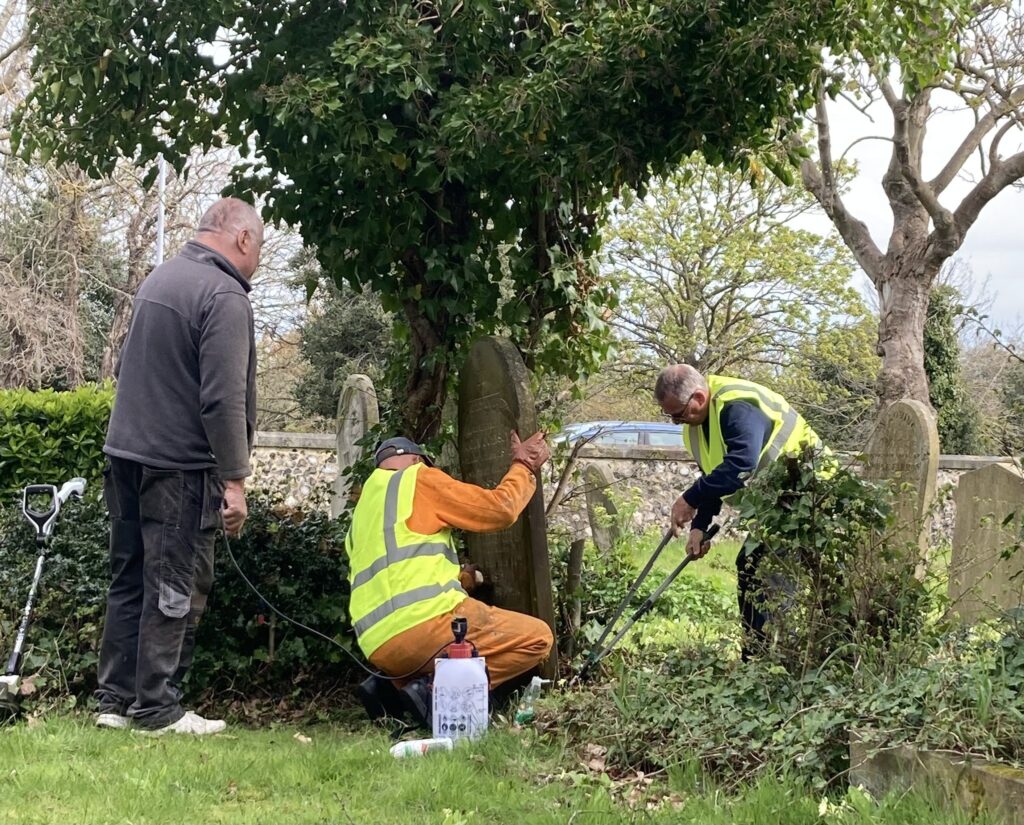I’m Steve, a former soldier. I clean and restore forgotten military graves.
Steve Davies
NEW FEBRUARY 2025. It’s an honour to bring you the story of SAS WW2 Legend LT COL ROBERT BLAIR “Paddy” MAYNE DSO and 3 Bars
http://www.militarygraverestorer.org.uk/sas-legend-lt-col-robert-blair-paddy-mayne-dso-and-3-bars
Here are some more of my restorations of unsung heroes’ graves around the British Isles. Read their compelling real life stories and see more on Facebook:
www.facebook.com/militarygraverestorer
November 2024
WW2 Battle of Britain Hero and Flying Ace Ronald Gustave Kellett/
NEW REEL! Renovation of Crimean veteran’s grave shaped like a ship’s prow!
Mark Lockwood – Lord Lambourne 1847-1928
Royal Navy Capt. George Percy Edward HUNT D.S.O. 1863-1917
Almeley War Hero’s Life and Suicide
General George Archimedes Searle General George Archimedes Searle MSc. 1827-1995
YOUR QUESTIONS ANSWERED
Please see our FAQS below

remembrance and history...

Military Grave Restorer CIC
Building on my personal passion for grave restorations, the project has transformed from my one-man-band into somewhat if a national phenomenon with BBC news coverage, royal recognition and other media coverage!
While I’m out restoring graves, a volunteer is researching behind-the-scenes for the stories of the graves.
stones and stories...
MGR Restored Graves
Here are just some before and after photos, from the hundreds of memorials and graves I’ve restored by myself and together with volunteers.
The Google map is a work-in-progress that we constantly update with locations of the many graves and memorials. Keep checking back to see the expanding number and where grave restorations are across the country.
Want to know more? See our FAQs below.
Thank you


















what you can do...

Volunteer Work Parties
I collaborate with armed-forces charities and other community organisations to lead volunteer grave and memorial masonry cleaning projects around the UK, mentoring, training and providing support to volunteers.
If you would like to volunteer, and find out more about how to get involved with grave cleaning and restorations, see the frequently asked questions (FAQs) below. Thank you
your questions answered...
The answers to some of our most frequently asked questions FAQs
Yes! Steve is a qualified memorial mason. After several years of solo work, simple tidying and cleaning, Steve (an Armed Forces veteran) received a grant from the Veterans’ Foundation to train as a qualified and registered ‘British Register of Accredited Memorial Masons’ (BRAMM).
The BRAMM qualification is a UK-wide qualification which many burial ground managements require for any work in any burial site.
Steve complies with BRAMM “Blue Book” methodologies and procedures. British Standard 8415 https://www.bramm-uk.org/
The Blue Book
https://www.iccm-uk.com/iccm/wp-content/uploads/2020/09/iccm_The-Blue-Book-Revised-February-2016-FINAL-2.pdf
As tempting as it may be to just get stuck in, please don’t! Gravestones are made from many different types of stone. For example, Portland Stone: popular for its ease of carving, but is a very porous fragile stone – attempting to clean it can cause irreparable damage. Search for “Drysdale” on the Military Grave Restorer Facebook page for eight episodes of an officer’s astounding life-story, researched after his beautiful memorial couldn’t be cleaned due to its fragility, even by Steve a professional.
Commonwealth War Graves Commission graves: read Steve’s advice in the image. No one, including Steve, should clean these.
Maintenance of CWGC graves’ is the responsibility of the CWGC. If you are concerned about the condition of a CWGC grave always contact them first. You can also become a CWGC “Eyes on, Hands On” EOHO local volunteer.
Check out https://foundation.cwgc.org/get-involved/
NON-CWGC and OTHER GRAVES:
FIRSTLY, even for a family grave which you “own”, you must always SEEK PERMISSION from the burial ground owner, either the local authority or a diocese.
Cemeteries can be dangerous places – memorial masonry can weigh tons and people HAVE BEEN KILLED by falling tombstones.
The legal bit: Responsibility for the overall safety in a burial ground lies with the burial authority, which has responsibilities under the Health and Safety at Work Act 1974 and the Occupiers Liability Act 1957 to ensure that, as far as reasonably practicable, their sites are maintained in a safe condition. This includes anyone who enters the site to carry out work, such as a memorial mason, to carry out this work in a safe manner and in such a way that others using the site will not be put at risk.
More info: Institute of Cemetery and Crematorium Management (ICCM) https://www.iccm-uk.com/iccm/
Before you clean a grave, first read this advice from Steve... thank you.

Some lichen growing on graves can be unique and extremely old. Military Grave Restorer avoids removing such lichen and always uses recognised environmentally-friendly masonry cleaning products recommended and endorsed for heritage monuments around the world, including UNESCO World Heritage sites.
More about lichen: https://www.caringforgodsacre.org.uk/wp-content/uploads/2022/06/A-Guide-to-Lichens-in-Burial-Grounds.pdf
The Commonwealth War Graves Commission (CWGC) is responsible for Allied Forces war graves around the world from 1914 onward. https://www.cwgc.org/
A day in the life of a CWGC volunteer https://youtu.be/6U7sybc_8Wg?feature=shared
After permission from a burial ground owner, MGR / Steve and volunteers will clean neglected military graves that are outside the responsibility of CWGC; other neglected graves that are beautiful examples of craftsmanship; neglected graves that are poignant, significant, or simply intriguing.
In fact, any grave on a walk around a cemetery that makes you think, “That would look amazing if it was cleaned and was readable!”
Keep an eye out for Military Grave Restorer events on the MGR Facebook page!
Join a local group – be proactive, why not start a local group?
Check out these links…
Around the country many volunteer groups work in cemeteries and will welcome your help.
* Members of the National Federation of Cemetery Friends
* Commonwealth War Graves Commission Volunteer https://www.cwgc.org/our-work/volunteer/ Watch: https://youtu.be/6U7sybc_8Wg?feature=shared
* Green Gym and Conservation volunteers often overlap with volunteers who work in cemeteries. Check out the Trust for Conservation Volunteers (formerly the British Trust for Conservation Volunteers, BTCV) https://www.tcv.org.uk/ [includes info to find a Green Gym near you]
* Church graveyards often need help. Contact a local Vicar or Church warden – help to cut back vegetation around gravestones is often very welcome!
* Many local and informal groups help maintain cemeteries. Google, or ask around your area or on your local community’s Facebook page.
The Victoria Cross Trust https://victoriacrosstrust.org/get-involved/
The Forces Employment Charity (FEC) assists veterans https://www.forcesemployment.org.uk/
FEC run a Past and Present (heritage) Programme across the country which volunteers in cemeteries. https://www.forcesemployment.org.uk/news/how-community-programmes-help-veterans-to-live-law-abiding-lives/
The Op Nova Past and Present Programme grave renovation activities involves veterans and civilian volunteers. Visit/ join their Facebook page here https://www.facebook.com/groups/235961637654291
Many Veteran Armed Forces Breakfast Club members turn out to assist Steve with restorations when he’s in their local area. Join an Armed Forces Breakfast Club. Free to join, free to attend: enjoy breakfast and banter, combat loneliness, ”return to the tribe”. https://www.afvbc.world/
OP Courage is the NHS England programme for Armed Forces rolling out across the country. Many GPs are signing up as Veteran-friendly surgeries. https://www.nhs.uk/nhs-services/armed-forces-community/mental-health/veterans-reservists/
The Veterans’ Foundation – who kindly supported Steve with a grant to enable BRAMM training – have a Support Hub. https://www.veteransfoundation.org.uk/support-page/
And see links in earlier answers for OP Nova and Armed Forces Breakfast clubs.
Find those graves! Steve’s tactic to find fascinating graves is, literally, any graveyard he goes past, He’ll pop in for a stroll and have a look.
Many family and/or researchers want to find lost graves, so a great heritage community contribution is to photograph graves and upload the images to Findagrave. Learn more: https://support.findagrave.com/s/article/How-can-I-help-and-contribute
Email us the details (the link is on the front page): include the location (and nearest post code or What3words link) and who you are: [a relative / local resident / burial site owner] and attach two recent clear Jpegs of the grave.
Working on a not-for-profit basis, Steve crowd-funds through JustGiving for the cleaning equipment and materials costs for individual neglected graves.
Other restoration projects such as standalone war memorials are often funded by a mixture of regimental associations, charities and local authorities including parish councils, and with help from local volunteers.
Donations are always welcome! Environmentally-friendly heritage masonry cleaning products are very expensive. Equipment which regularly wears out, PPE, travel costs, to name a few … all needed for success on ‘a cleaning trip’.
Increasingly, cash-strapped local authorities use seasonal meadow cycles, of grass-cutting, rotating uncut areas to provide precious habitat havens for wildlife and to increase biodiversity: https://www.nhm.ac.uk/discover/wildlife-in-cemeteries.html
Cemeteries are tranquil green spaces. And working alongside veterans we’ve received great testimonies:
“Steve kept our Project Nova cohort engaged all day with encouragement and practical advice, it was one of the rare occasions that I witnessed veterans actually enjoying an activity – we have taken veterans fishing, car racing, walking but this activity seemed to really resonate with them all… [and] has really benefited all participants, veteran and civilian, mentally, physically and made them feel good about themselves.”
Not just for the dead: the importance of cemeteries https://historicengland.org.uk/advice/caring-for-heritage/cemeteries-and-burial-grounds/importance/#Section7Text
There is an interactive Google Map further up this page with locations of many of the MGR restored graves and memorials.
A day out with a difference: Google for “interesting cemeteries near me”
Other great cemeteries to visit: https://museumcrush.org/britains-best-places-to-see-heritage-graveyards-and-cemeteries/
If you’re on the South Coast check out Hove Cemetery with some amazing sculptural tombstones. In Scotland, Edinburgh’s Grange and Warriston cemeteries have fascinating and large memorials.
You can support Steve to continue his mission of cleaning and restoring as many forgotten and neglected graves as he can.
Your donation to the project will go toward the essential costs of grave restoration cleaning materials, tools and equipment and travel expenses. Thank you.